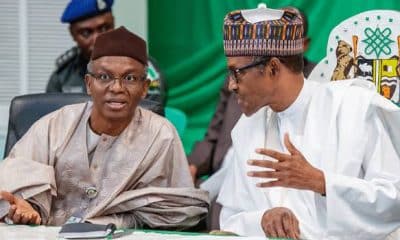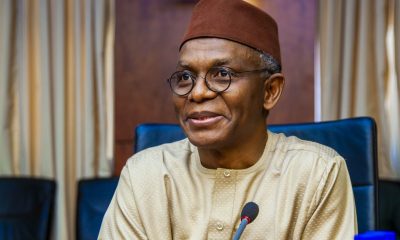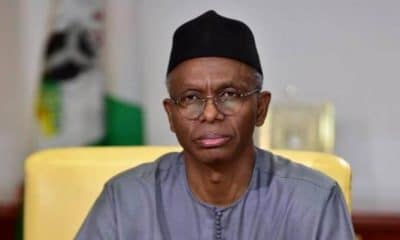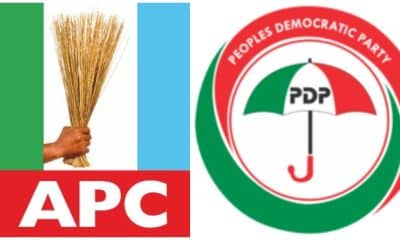Politics
2023: APC Leaders Warn Buhari Against Consensus Candidacy

Ahead of the presidential primary election of the ruling All Progressives Congress,
President Muhammadu Buhari has been warned by some leaders of the party against imposing a consensus candidate ahead of the 2023 general election.
The presidential primary election of the ruling party is scheduled to hold in May.
The party had recently produced its national chairman, Abdullahi Adamu through consensus arrangement after President Buhari appealed to governors and other stakeholders in the party.
Following the successful outcome of the convention, some stakeholders in the party are already pushing for the consensus method to be adopted during the presidential primaries.
The South-West Agenda for Asiwaju 2023 (SWAGA’ 23) has described the idea of a consensus presidential candidate as unacceptable.
The National Secretary of SWAGA, Bosun Oladele while speaking with Daily Independent, said any aspirant seeking to be the consensus presidential candidate is only trying to get the ticket through the backdoor.
He said, “Like I said, there is nothing like a consensus presidential candidate. That will be a short cut which they know cannot be possible through a primary if all the aspirants file out on the field. Nobody should think of getting the ticket through the back door.”
A former House of Representatives member, Abdulmumin Jibrin, who is the Director-General (DG) of Asiwaju Bola Ahmed Tinubu’s Support Groups Management Council (ABATSGMC), had on Wednesday warned that the way the APC manages its primaries will determine if there would be a crisis in the party.
He wrote in a post on Twitter, “I have said it repeatedly how the APC manages its upcoming primaries at every level (states and national) including presidential will determine the survival of the party. Anything short of allowing the choice of the people to prevail in the primaries will spell doom for the party!”
The Chairman of the Presidential Advisory Committee Against Corruption (PACAC), Itse Sagay, while speaking on the consensus idea said while the law provides for consensus, it must not be forced on the aspirants as it may lead to litigation afterwards.
He said, “On the issue of consensus presidential candidate, the law provides for it. However, it states clearly that all the candidates must agree in writing to the person picked as the consensus candidate. IthinkIprefer that because it means if they all agreed in writing, then nobody can go to court to challenge the outcome after the consensus candidate has been adopted.
“Now, what this means in effect is that if everybody does not sign accepting that particular candidate, then the election remains open for everybody to contest. That is the implication of not agreeing to the choice of a consensus candidate. If by tomorrow, even if the president’s preferred aspirant does not have the written endorsement of all the aspirants to become the consensus candidate, then the election will be thrown open so as not to invalidate the decision of the party.
“If those who are contesting, come together and agree that the person who is the consensus candidate is the best to handle the position, there is nothing wrong with that. What is wrong is that the aspirant is imposed on unwilling aspirants as the consensus candidate. That to me is not being fair and unacceptable and there has to be an election. If all of them agree on one person as the consensus candidate, then there is no need for an election. That is also very good”.
A former president aspirant, Gbenga Olawepo-Hashim on his part said consensus shouldn’t be forced on any of the presidential aspirants. He said, “Whether it is consensus or whatever mechanism, there is none of it that is strange to democracy. What is important is that it should not be forced. It should not be imposed. Let every interest compete and let candidates negotiate among themselves to reach that consensus. “I am not afraid of a consensus arrangement and I don’t think it is strange to democracy. But it must be through the principle of voluntary participation in the process in such a way that no one is seen to have been cheated out of the process. That is key and it is important”.












